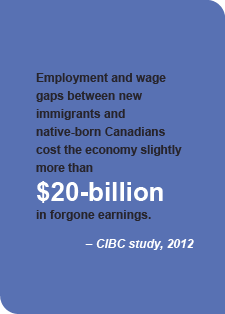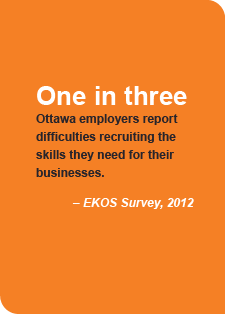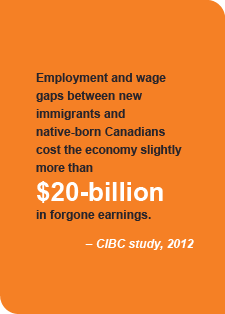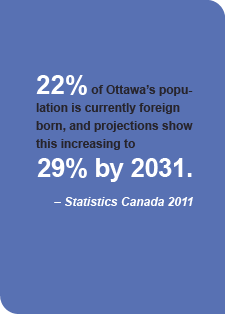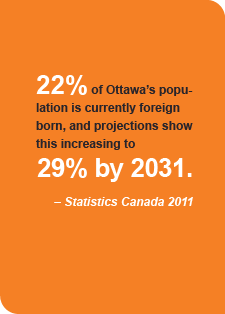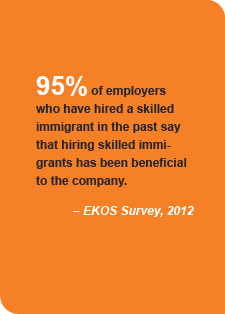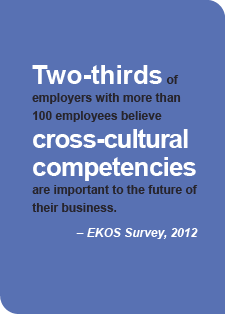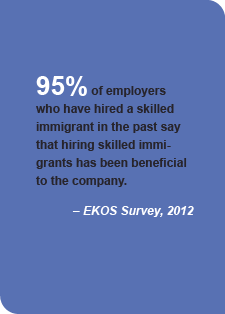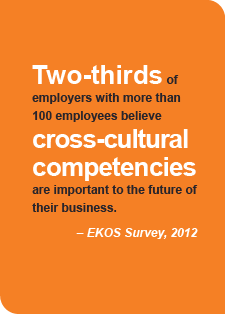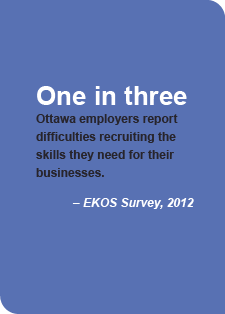Everyday Acts of Inclusion
Diversity drives organizational success. However, success is only achieved when everyone feels included and can contribute to their full potential. Despite the evidence that leveraging the strength of a diverse team comes from building an inclusive work culture, many organizations struggle to create welcoming and truly inclusive workplace cultures.
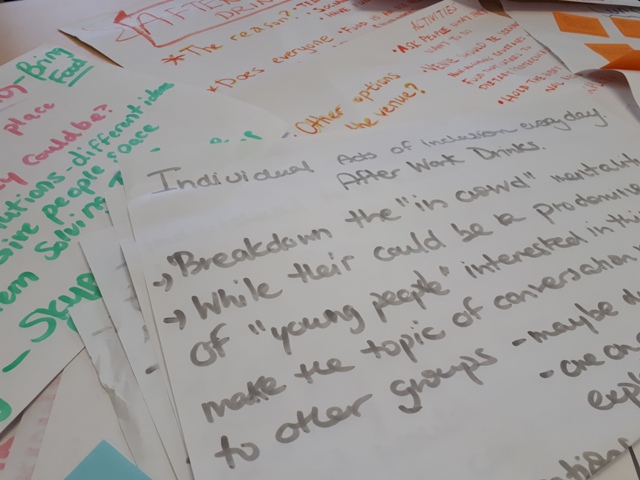 Organizational culture is deeply ingrained. It is the values, beliefs and behaviors that contribute to the environment of a workplace. Organizational cultures are unique to each organization and difficult to change.
Organizational culture is deeply ingrained. It is the values, beliefs and behaviors that contribute to the environment of a workplace. Organizational cultures are unique to each organization and difficult to change.
How can we influence workplace culture to be more inclusive?
Changing an organization’s culture does not happen overnight, and it almost never happens because of a sweeping set of new policies or protocols. Instead, it takes individuals modelling the workplace culture they desire – and changing the baseline of what is expected. Everyone in the organization contributes to shaping the culture, as well as abiding by the written and unwritten rules within an organization. This means that everyone can be a part of changing organizational culture.
An organization’s culture is the sum of its parts and there is a ripple effect when individuals change their behavior. No matter our role within an organization, we all play important roles in fostering and creating meaningful change to build a diverse and inclusive workplace.
At the 2018 Employer Summit, we asked over 100 employers and skilled immigrants to personally reflect on a time they felt included in the workplace. Participants shared pages of examples about times they felt included in a workplace and the impact this had for them. Almost all the examples of inclusion involved just one person within a workplace making a small effort.
Each of these small everyday acts of inclusion influence the organizational culture and help to promote inclusion. Here’s what we heard:
1. Actively and Genuinely Listen
Individuals shared that they felt included when colleagues and management actively and genuinely listened to them in a workplace setting. While this is not surprising as important, it is surprising that many people frequent their workdays without being truly listened to. Examples of when individuals felt listened to included when an interviewer genuinely listen to answers and sought clarification to understand; people putting down their phone or other distraction in order to listen and make eye contact; and people genuinely asking about ones work, holidays, community life, family, traditions and culture.
Active and genuine listening in the workplace is not only important in the moment, but impacts individuals and the overall organization’s ability to be inclusive. Many of the experiences of inclusion shared revolved around someone in the organization remembering something they said (e.g., remembering someone’s name, a project they are working on, a detail about their family, a hobby they love or the holiday they recently celebrated) and taking action to use that information to be inclusive (e.g., ordering Halal food for a work social event, a colleague buying a Kwanza card, seeking out someone’s expertise based on previous work, asking about their family, acknowledging a cultural tradition across the organization). When people take a little more time to genuinely listen, without distraction, people in the workplace feel valued and more able to be themselves at work.
2. Acknowledge Individual Work Contributions
Individuals shared that acknowledgement and recognition for their work made them feel included. At times this was a formal email sent to the office to highlight someone’s contribution to a project or simply a colleague saying “that’s a good idea” in a meeting. People felt most included when their work contributions were shared in front of others, widening the recognition of their accomplishments and contributions. It did not need to be management acknowledging great work or contributions to a project, and was equally important when colleagues made an effort to share recognition for the contributions of others. Similarly, people felt included when colleagues supported their ideas and contributions in meetings and discussions, amplifying their voices and crediting them (e.g., “As Salam said, I also think…”)
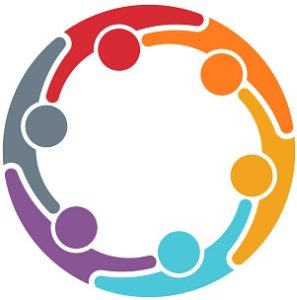 3. Seek out People’s Expertise and Opinions
3. Seek out People’s Expertise and Opinions
Similarly to having ones work, contributions and ideas recognized, people appreciate and feel included in the workplace when they are called upon for their opinions, help or expertise. Individuals shared that they felt valued and included when they are proactively asked for their opinion or advice on a project; consulted in a decision-making process; asked for help on a task and looped into a meeting outside of their department or area. For some, this made the workplace feel less hierarchical and more collegial.
4. Welcome New Employees
Individuals recalled feeling included when they were actively and warmly welcomed as new employees to an organization. From day one with a new employee, when someone took an active role to introduce them, orient them and include them in social opportunities, they felt included and welcomed. People felt welcomed when a colleague or supervisor took the time to show them parts of the building, office and surrounding area. They remembered helpful tips to orient them (e.g., where to eat) as well as efforts to highlight workplace norms and culture (e.g., many people eat at their desk in this organization). Others recounted appreciating the inclusive gesture of management sharing a personal all staff announcement or holding a meeting to welcome them.
5. Pay Attention and Extend an Invitation
Many shared that they felt most included at a time when a colleague noticed them in a moment where they were feeling uncomfortable and reached out. Individuals shared simple acts such as being approached and talked to when alone at a table or event or having a colleague help make introductions to others in a work social setting. Similarly, when an invitation to join a social setting was personally extended, people felt included (even if they didn’t go). People felt included when invited out to lunch or coffee or being invited to join a group or social committee or event after work. Individuals appreciated being approached and invited to join in, especially if they were new to an organization or feeling “like an outsider.”
It’s the cumulative impact of these types of everyday acts of inclusion that builds workplaces where diverse and talented people want to be – and stay.
These day-to-day actions and behaviours are ones that we can each adopt to build trust across difference and help create and foster a welcoming and inclusive workplace culture. Many of us do these things regularly and don’t always realize the positive impact they make. A simple act like “People smiling at me, even if we don’t know one another” is enough to make someone feel included. Conversely, when we forget to take the time for these small acts of inclusion, our workplaces and relationships can suffer. Together, these small acts are some of the key ingredients to creating an inclusive organizational culture where everyone can contribute to their full potential.


